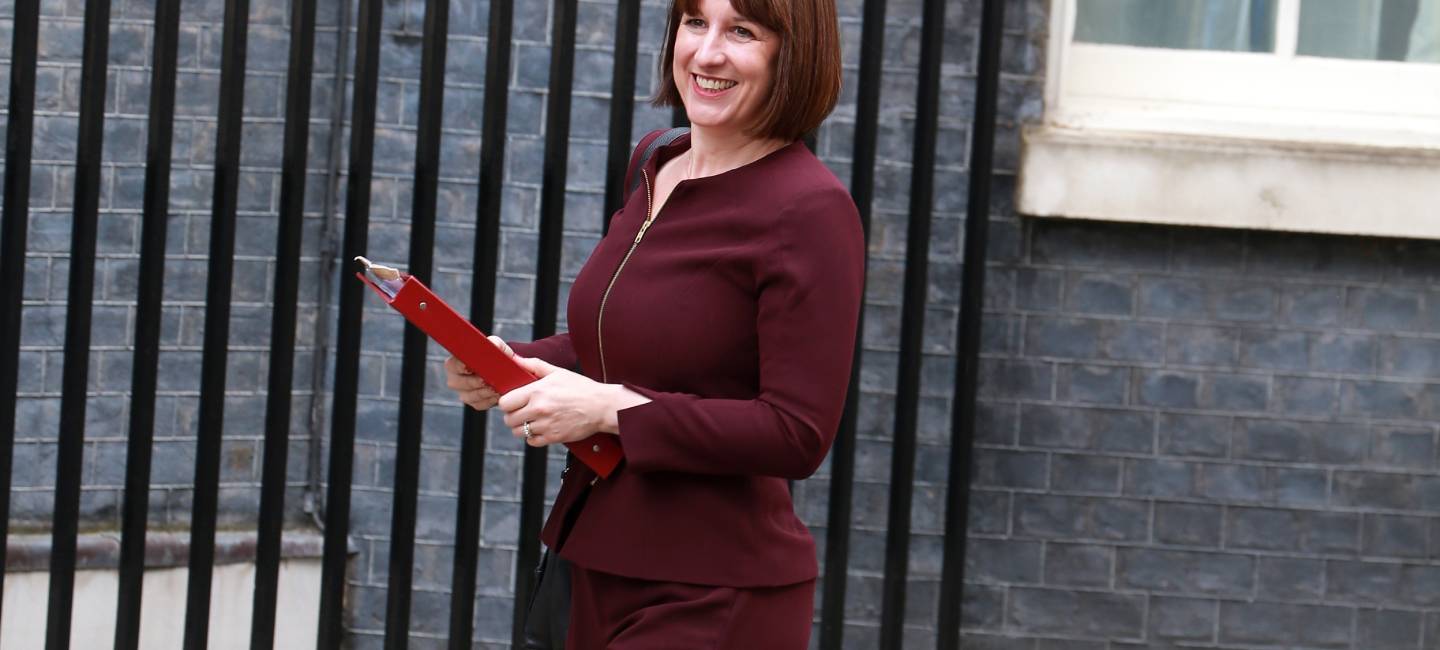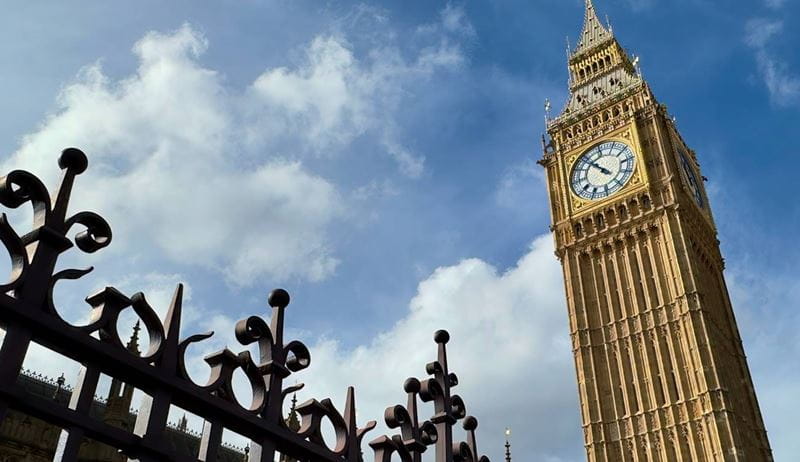

This article is for general guidance only and is not financial or professional advice. Any links are for your own information, and do not constitute any form of recommendation by Saga. You should not solely rely on this information to make any decisions, and consider seeking independent professional advice. All figures and information in this article are correct at the time of publishing, but laws, entitlements, tax treatments and allowances may change in the future.
Today’s Spring Statement didn’t feature the number of tax and personal finance announcements we’ve come to expect from the Chancellor’s twice-yearly presentations. Having already said that she only wanted only one ‘fiscal event’ each year, Rachel Reeves’ first Spring Statement was very much an economic update.
Major spending cuts to the welfare budget had already been announced and were confirmed today.
Below, we’ll set out the key messages announced today and what they mean for you.
The Office for Budget Responsibility (OBR) has halved its growth forecast for 2025 from 2% to 1%. However, it has increased its forecasts for the coming years and is predicting 1.9% in 2026, 1.8% in 2027, 1.7% in 2028 and 1.8% in 2029.
The OBR also said that household income would grow at twice the rate that had been forecast in the Autumn Budget. As a result, it says the average household can expect to be £500 a year better off.
Inflation rates that fuelled a cost-of-living crisis may now have settled down. However, anyone living on a fixed income will still be keen to know what’s likely to happen to bills over the next few years. Today it was announced that inflation had dropped to 2.8% in February, driven largely by the falling cost of clothes.
Looking ahead to the coming year, the OBR says inflation is likely to rise again, averaging at 3.2%, up from its earlier forecast of 2.6%, thanks to rising oil prices. However, it stressed that higher inflation should only be temporary and expects the government to reach its target rate of 2% in 2027.
Previously this was only expected in 2029. Sarah Pennells, consumer finance specialist at Royal London, says: “This is still a fraction of its highs of 11% reached in October 2022, but it may be worrying for consumers that prices will continue to rise at over 3% for the rest of the year.
“Royal London cost-of-living research shows that almost nine out of 10 adults are worried about rising energy costs and over eight in 10 about higher food bills. Even with falling inflation, fear surrounding these essential costs is likely to continue under a backdrop of high wholesale gas prices which could feed through into higher energy bills.”

Following the national insurance bombshell for employers, increases to capital gains tax rates and changes to pensions and inheritance tax, which were all announced in last year’s Autumn Budget, there were no changes to tax announced in the Spring Statement.
However, some experts are warning that further tax increases could be announced later in the year. Sarah Coles, head of personal finance at Hargreaves Lansdown, said: “The spending cuts have kept Reeves the right side of her fiscal rules [which limit the amount government can borrow to fund public spending].However, there’s not a vast amount of space in the budget, so if we don’t get the growth the government is hoping for, there could be tax rises lurking in the Autumn Budget.”
Jason Hollands, managing director of wealth manager Evelyn Partners, also pointed out that the absence of further tax hikes today may only provide limited comfort, as we’re yet to feel the pinch of measures that have already been announced (such as increases to national insurance for employers and bringing pensions into the reach of IHT).
“The Office for Budget Responsibility (OBR) said taxes would rise from 35.3% of gross domestic product currently to a record high of 37.7% in 2027-28. The main long-term driver behind this, which will affect most households in the UK, is personal income tax allowances and thresholds remaining frozen until at least 2028 – measures which are going to drag millions more people by stealth into the basic, higher and additional rates of tax, putting everyone in a slowly tightening financial thumbscrew,” he said.
In the months before the Spring Statement there was intense speculation that the allowance for cash ISAs could be slashed from £20,000 a year to just £4,000 in a bid to encourage more people to invest in the stock market. Rachel Reeves reassured savers ahead of the statement that this measure would not be announced in the spring.
However, documents accompanying the Spring Statement do state that the government is considering ways to reform ISAs, with a view to encouraging investing.
Commenting on the proposed reform, Michael Summersgill, CEO at investment platform AJ Bell, said: “Some have argued that cash ISA allowances should be scaled back to effectively shove people towards investing, and the Spring Statement document says the government is looking at ways to get the ‘balance right between cash and equities’ when it comes to ISAs. However, research conducted by AJ Bell focused specifically on cash ISA savers suggests this will not be an optimal way to shift consumer behaviour, with only one-in-five saying they would migrate to investing in the UK stock market if the cash ISA allowance was reduced or abolished.”
He adds: “On top of that, any restriction on the amount of cash held within ISAs would also run counter to Labour’s stated aim to simplify the ISA landscape. Rather than having a simple-to-understand £20,000 overall limit, people would have a limit within that limit and there would need to be complex restrictions on transfers from stocks and shares ISAs to cash ISAs to prevent people gaming the system.”
Richard Wilson, CEO at Interactive Investor, also called for more simplicity and urged the government not to make ISA rules even more complicated. "The major platforms recently wrote to the chancellor on the ISA question to say let's keep it simple. For some people having their cash in an ISA is sensible, for others filling their ISA with stocks is the right choice. What is dumb is to load the bases to incentivise the wrong choice.”
There were no changes to pension policy or taxation announced in the Spring Statement either. Craig Rickman, personal finance expert at Interactive Investor, says: “Last year served up a rollercoaster for pension taxation, so no further changes being announced is something of a relief.
That said, savers still have multiple headwinds to contend with, including the impending changes to how pensions are affected by inheritance tax.” It’s still possible that pensions could be targeted later in the year. Rickman adds: “While no changes were announced today, Labour’s pledge to hold one major fiscal event a year means eyes now turn to the Autumn Budget.
“To avoid a repeat of the damaging speculation in the lead-up to last year’s event - which risked people making knee-jerk decisions with their long-term pension wealth - it would be good if the government could commit to leaving pension tax alone for the time being. Consistency here is essential for savers to invest for their future in confidence.”


We partner with Co-op Legal Services to offer advice and services for you and your family.


If you’re entitled to pension credit, you can also unlock other cost of living help.
.jpg?la=en&h=354&w=616&hash=BE59986E855569FEC6926261D767F978)

Find out the cost and benefits of voluntary NI contributions.

Delays in HMRC tax letters plus higher interest rates mean savers are at risk of surprise bills

.jpg?la=en&h=354&w=616&hash=8F1C902484B56EB0A153365B51BD4EBA)
See if you can claim, check rates, and learn how to claim.